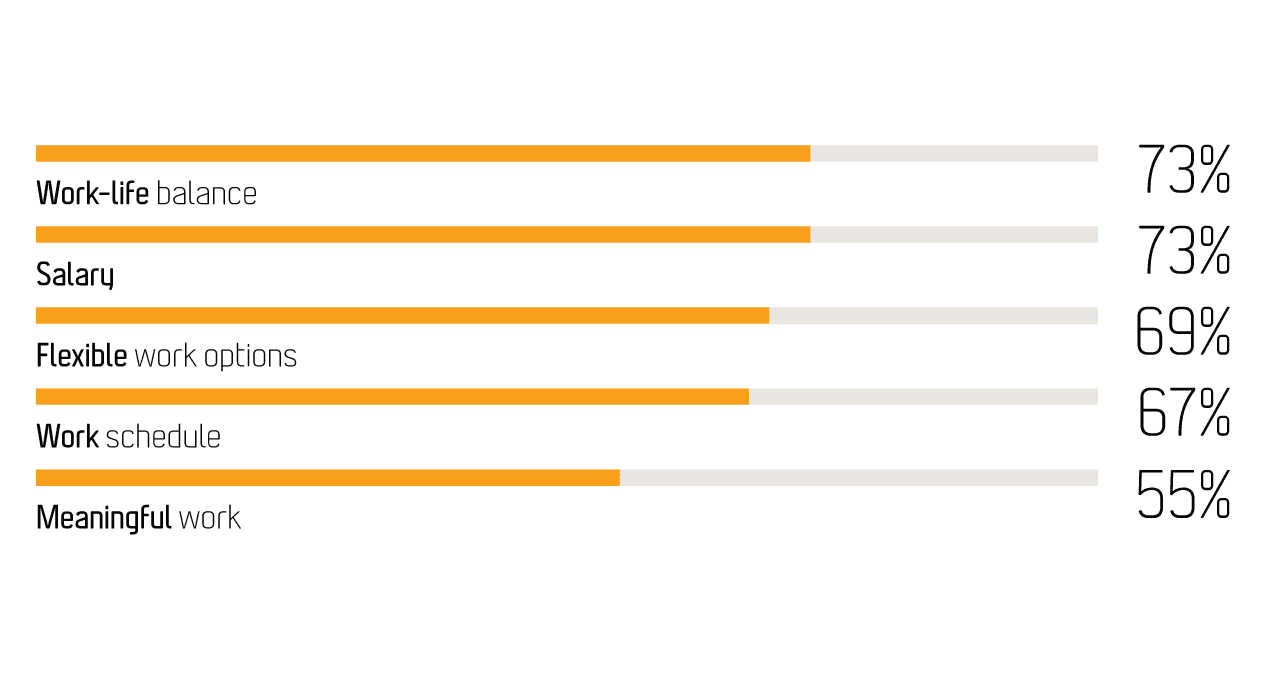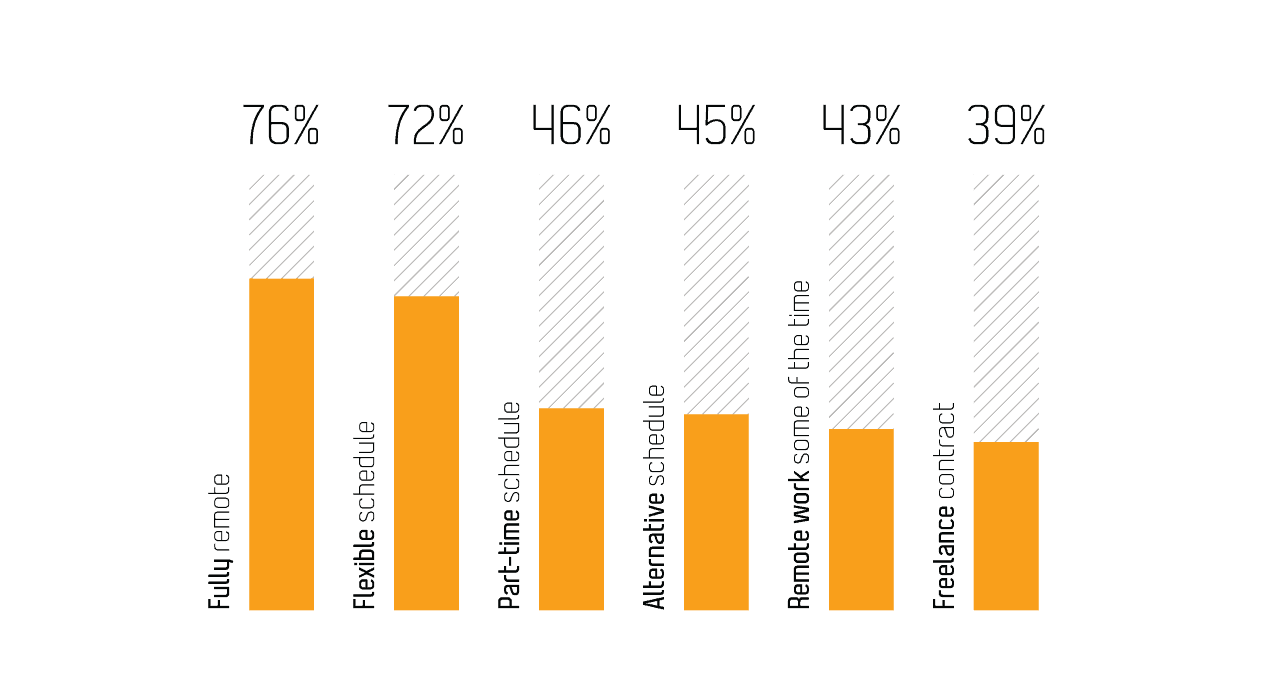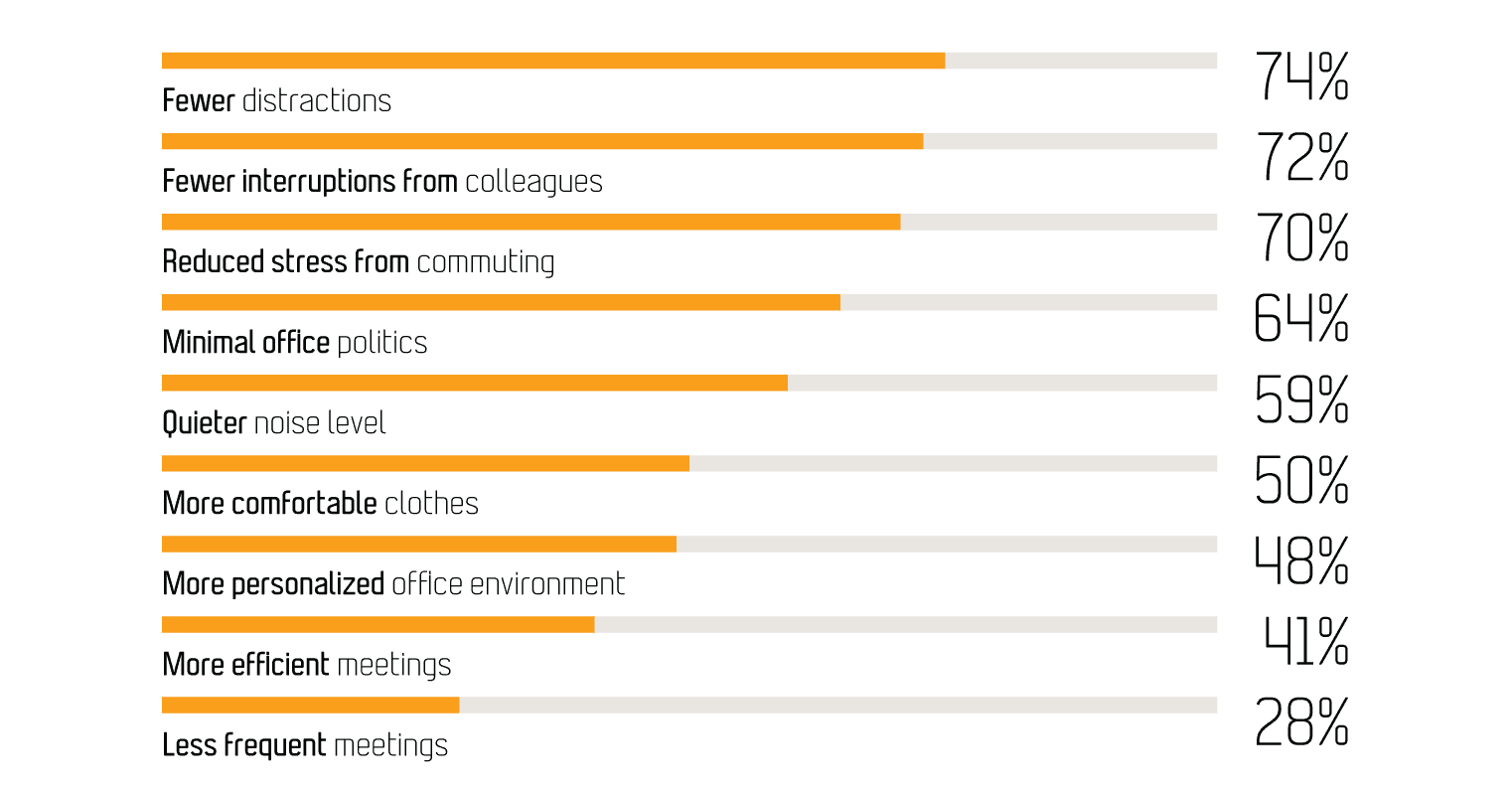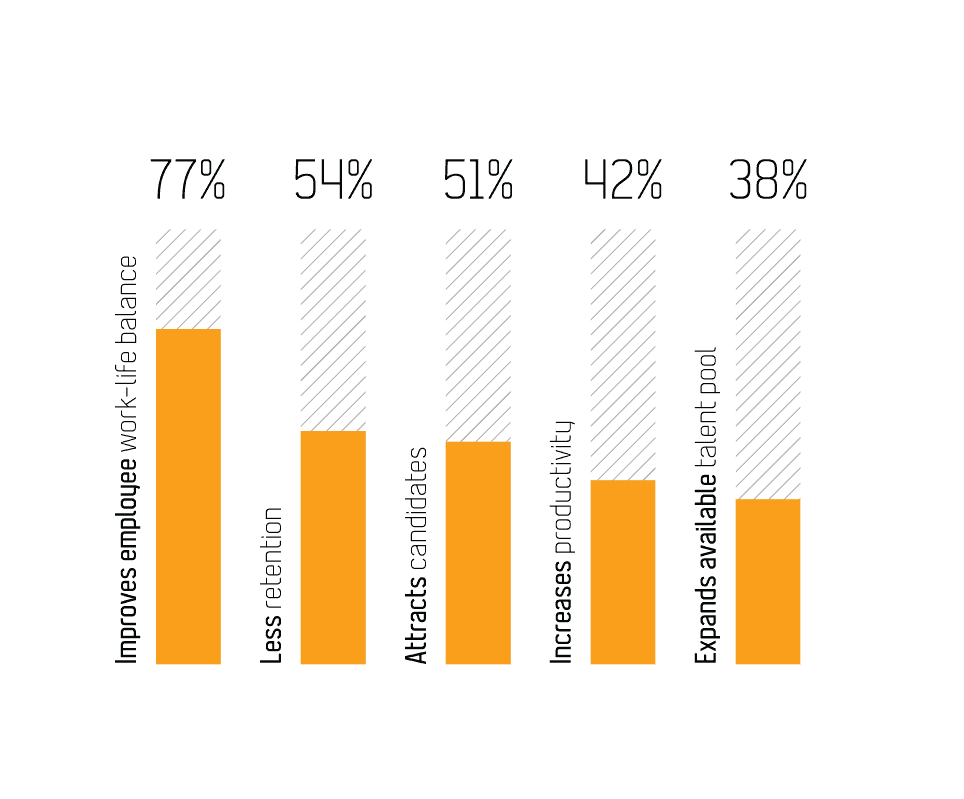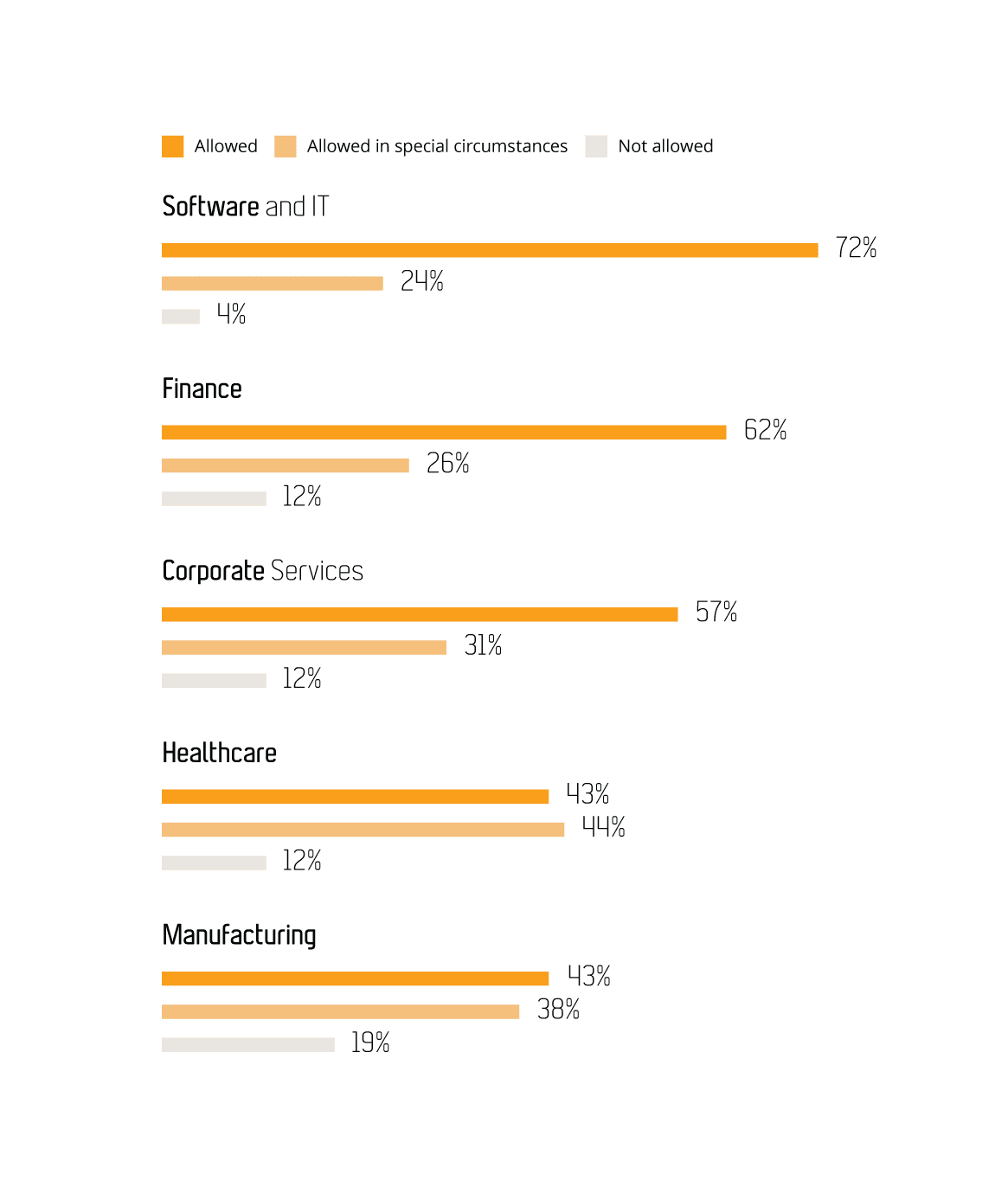
Remote work around the world – infographics
Even though remote work is not new, more and more companies embrace the benefits it brings. It is also becoming desirable by employees who value their private and family life.
According to the No Fluff Jobs Report, the number of people who applied for a remote job in 2019 increased by over 40% in comparison to the statistics from 2018.
I. Employee perspective
69% of the respondents of the FlexJobs 2019 Annual Survey said they search for a flexible work option when evaluating career prospects. Lack of flexibility can affect their job choices, as reflected by the fact that 30% of workers have reported leaving a job because it did not offer flexible work. What is more, 16% of respondents said they are currently looking for new job opportunities specifically because of work flexibility issues.
1) The most important reasons why people look for a flexible job are:
2) What do candidates look for when evaluating job prospects? Below there are the top 5 factors affecting candidates’ choice:
However, apart from the above one highly listed were also: health insurance, retirement benefits, vacation time, and paid parental leave.
3) The ranking of interest in different flexible work options:
4) How remote work affects productivity?
Why are they more productive at home office?
5) Remote work and its impact on health
Remote work may also bring serious health benefits as 78% of people said having a flexible job would allow them to be healthier (eat better, exercise more, etc.) and 86% said they’d be less stressed.
44% of responders said a job with flexibility would have a “huge improvement” on their overall quality of life and 53% said it would have a “positive impact.”
The survey conducted by FlexJobs in 2020 brings similar results:
6) Remote working makes employees happy
People who have the opportunity to work remotely more often declare that they are satisfied with their job (90%) than people who do not (78%).
II. Employer perspective
The data presented by the FlexJob survey show that remote work is not only a perk for employees. Businesses can also benefit from including job flexibility in their strategies and operations. It brings many advantages and remote work options help to attract well-educated specialists who have experience from different backgrounds.
It also helps to save
costs associated with the creation of workplaces, as well as costs related to
employee replacement.
Let’s take a look at the data:
- Employee retention – 80% of respondents said they would be more loyal to their employers if they had flexible work options
- Reducing expenses – 28% of respondents said they would take a 10% or 20% cut in pay
- Productivity – 65% of respondents think they would be more productive working from home
- Education and experience – work flexibility appeals to highly educated and experienced workers since 78% of respondents
- Hiring strategy – 97% of respondents are interested in being a flexible worker in the long-term
This is confirmed by yet another study – LinkedIn’s Global Talent Trends 2019 report that identified three trends that will shape the employee-employer relationship: soft skills, work flexibility and pay transparency.
According to the report, flexibility of employment will become the new normal…and it’s good for the business as it helps employers attract and retain talent while boosting productivity.
Companies enumerate the following among the benefits of work flexibility:
Which industries allow remote work?
Naturally, there are professions and industries in which remote work is not possible and it comes with no surprise the industry with the most flexible working conditions is tech.
As you can see, 72% of IT workers are allowed remote work, compared to only 43% of professionals in the manufacturing and healthcare sectors.
As you can see, remote work is already happening in a lot of organisations around the world. Although it may be a challenge to adapt to it, based on the above data, it’s definitely worth considering for the sake of your employees and your business.

